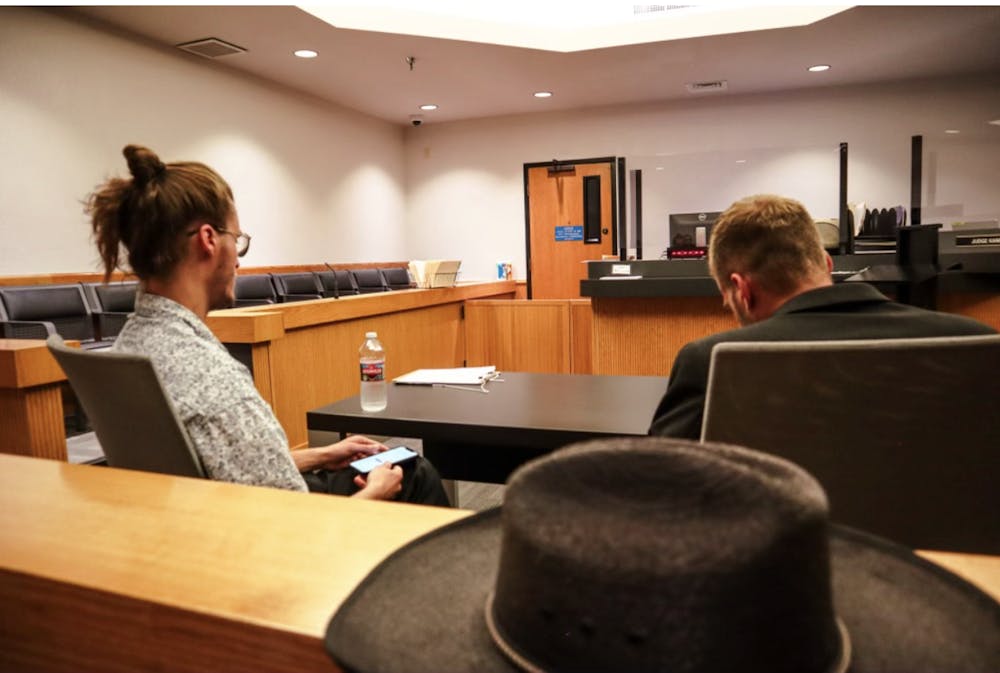A non-profit law firm announced its intention to represent AZ Hugs in a lawsuit wagered against the City of Tempe.
In a press release, Pacific Legal Foundation introduced its intention to challenge Tempe city code 5-2 as unconstitutional for violating the First and Fourteenth amendments of the United States Constitution and incorrectly interpreting the city code ordinance.
Tempe city code 5-2 requires a permit for any public gathering that is open to the public or that includes a substantial deviation of land use or legal nonconforming use on city-owned and private property, according to the city of Tempe.
The ordinance has been given by city officials as the reason behind citing certain members of the Tempe community who served food to the homeless without a special events permit.
The April 10 press release outlined the issues at stake for homeless advocates and the homeless community of Tempe. It announced the intention of a lawsuit against the City of Tempe.
The release concluded:
“The government doesn’t hold a monopoly on charity. Americans have the constitutional right to pursue their calling without burdensome regulations—including helping those in need. Tempe should applaud citizens whose private charitable acts uplift people and their communities, not arrest them or obstruct them with unlawful permit mandates.
Represented by Pacific Legal Foundation free of charge, Austin, Jane, and Ron are fighting back with a federal lawsuit. A victory would restore their right to serve Tempe’s most vulnerable residents and protect the rights of all Americans to pursue similar acts of compassion free from unjust government interference.”
The three homeless advocates referenced by Pacific Legal Foundation are Austin Davis, Jane Parker and Ron Tapscott, all of whom have served food to the homeless population in Tempe without a permit.
The permit recommended by the city is labeled as a “special events permit,” and covers a gamut of potential events with a review period of 60 days.
Austin Davis, a homeless advocate who has been cited and arrested over the last two years for charges ranging from trespassing to serving food without a permit, said that the city code uses vague language that doesn’t directly apply to feeding the homeless.
“Our belief is that this ordinance and city code is being used against the homeless community to try to limit access to basic human rights,” Davis said.
Davis is the founder of AZ Hugs, the non-profit that experienced city scrutiny when it continued operating during the 60-day permit process.
AZ Hugs was told to stop serving food to the homeless population for two months while the committee reviewed the permit application. The non-profit was later denied the permit on the grounds that it had not stopped services during the 60-day review.
“They’re been using this permit scheme to try to invalidate the ways we share food with each other,” Davis said.
“I think perhaps the language in the special events permit is intentionally vague,” Ron Tapscott, a volunteer for New Deal Meal, a group that serves food to homeless people in Tempe, said.
Tapscott was also cited by police for not having a special event permit. He helped form the group as a private club where members sign in, hoping that would eliminate the need for a special events permit, a permit he holds to be more appropriate for large commercial activities.
“We believe that they’re violating the law and our constitutional rights to assemble,” Tapscott said.
In December 2024, Tempe announced strict enforcement of its urban camping ordinance as a result of the U.S. Supreme Court’s Grants Pass decision and the passage of Proposition 312 in a press release.
The ordinance prohibits using public property to sleep, pitch tents and store belongings.
Those in favor of the ordinance felt that it would make public spaces safer. Opponents decried the repercussions of a 2,500 dollar fine or six months imprisonment.
Though the lawsuit will not address Tempe city code 23-90, to Davis, these ordinances are all linked. The current interpretation and enforcement of city code 5-2 is just another way to criminalize homelessness, Davis said.
“For over a year now, the City of Tempe has been criminalizing homelessness and targeting advocates for those experiencing homelessness with legal consequences,” Davis said.
The announcement comes a month after Pacific Legal Foundation reached out to Austin Davis, offering to represent him in a lawsuit against the city of Tempe.
The non-profit, tax-exempt law foundation whose staff attorneys take on cases involving equality and opportunity, separation of powers and property rights approached Davis following his legal battles with the city of Tempe.
“The whole point of this, on our end, is to invalidate city code 5-2, which is what they’ve been using against us because it is being used to limit access to food and water for the homeless,” Davis said.

